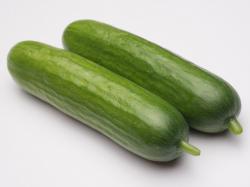Bayer Introduces Hydroponic Lettuce, Colored Carrots And New Snack Vegetable Label
February 10, 2017 | 4 min to read

Monheim/Berlin – Bayer showcases its Food Chain Partnership activities at Fruit Logistica in Berlin that is taking place from February 8 to 10. The company presents a number of successful partnership examples from various regions that link partners along the value chain enabling safety, quality, affordability, transparency and above all sustainability, from seed to shelf. In addition new vegetable seed varieties for the fresh produce chain are introduced, including hydroponic lettuce, colored carrots and a new snack vegetable label.
Bayer’s Food Chain Partnership initiative is based on delivering tailored integrated solutions that address the individual local challenges of growers and the supply chain. “We don’t have ready-made solutions,” says Ronald Guendel, Global Head of Food Chain Relations at the Crop Science division of Bayer. “In all our projects, we check out the situation on site, talk to our partners to find out which needs they really have. With this understanding we then develop individual action plans and provide growers with the tools to meet those needs.”
The Food Chain Partnership initiative has grown tremendously over the past decade and become an indispensable link between growers, traders, processors and retailers when it comes to improving sustainable practices for farmers and suppliers worldwide. Currently about 70 Food Chain Managers from Bayer are active in 30 countries around the world and focus on more than 50 different crops.
Individual challenges addressed in numerous projects
To show the diversity of projects and share first-hand insights, the Food Chain Relations team highlights five interesting new collaborations at the Bayer booth. One of these projects is the partnership with the Dutch trading organization Cefetra that is seeking to raise soybean production standards and encourage sustainable growing practices. Another Brazilian project features the responsible production and certification of potatoes. A fairly new collaboration from the Ivory Coast looks at the implementation of integrated pest management, training for growers and certification in cocoa production. The focus of a vegetable project in the Dominican Republic is on significantly reducing the application of chemical crop protection products. And in a Guatemalan vegetable partnership, Bayer among others supports its partner to build up an organic production program.
Additionally, Bayer will demonstrate its collaborative approach that fosters sustainable agriculture in its Exhibitor Forum. In a series of expert talks with external partners such as Freshfel, Greenyard, Coexphal, Primor Fruit and Netafim, the company addresses key challenges and opportunities in fruit and vegetable production with a focus on Europe. The participants will illustrate how they are working together with Bayer towards implementing innovative and sustainable concepts.
For Bayer sustainability is an integral part of the company’s business strategies. “We are committed to enabling sustainable agriculture and helping ensure global food security with resource efficient production of healthy and nutritious crops,” says Mathias Kremer, Head of Crop Strategies and Portfolio Management at the Crop Science division of Bayer. “Together with our partners we are looking into ways to make farming more sustainable and environmentally friendly but also economically viable for farmers.”
Vegetable launches – innovative convenience products
The Vegetable Seeds team of Bayer uses Fruit Logistica to launch some of its innovations for the fresh produce chain. A huge production trend, for instance, is hydroponic lettuce. These plants grow in a nutrient-rich water solution in a greenhouse. At first glance, producing hydroponic lettuce is more expensive than growing it in soil. However, there are also many benefits. Producing in a greenhouse means that growers are not dependent on the weather, they get results sooner and can harvest more often. For consumers and processors, hydroponic lettuce is easier to handle because they do not have to wash the crop intensively. And consumers can buy a sustainably produced product that requires fewer crop protection products during the growing stage.
Bayer is also presenting a new colored snack carrot design that contains four different colors and is based on different Nunhems™ Imperator varieties. Each one has its own taste and different healthy components, while the growers benefit from their disease resistance. Compared to traditional carrots, they are crispier, sweeter and have a more attractive color. In addition, the company showcases its recently launched Minigustos™ label, the world’s first brand for tasty, crunchy, and attractive snack vegetables. The first vegetables to be released under the Minigustos label will be snack cucumbers.
Bayer: Science For A Better Life
Bayer is a global enterprise with core competencies in the Life Science fields of health care and agriculture. Its products and services are designed to benefit people and improve their quality of life. At the same time, the Group aims to create value through innovation, growth and high earning power. Bayer is committed to the principles of sustainable development and to its social and ethical responsibilities as a corporate citizen. In fiscal 2015, the Group employed around 117,000 people and had sales of EUR 46.3 billion. Capital expenditures amounted to EUR 2.6 billion, R&D expenses to EUR 4.3 billion. These figures include those for the high-tech polymers business, which was floated on the stock market as an independent company named Covestro on October 6, 2015. For more information, go to www.bayer.com.
Source: Bayer
